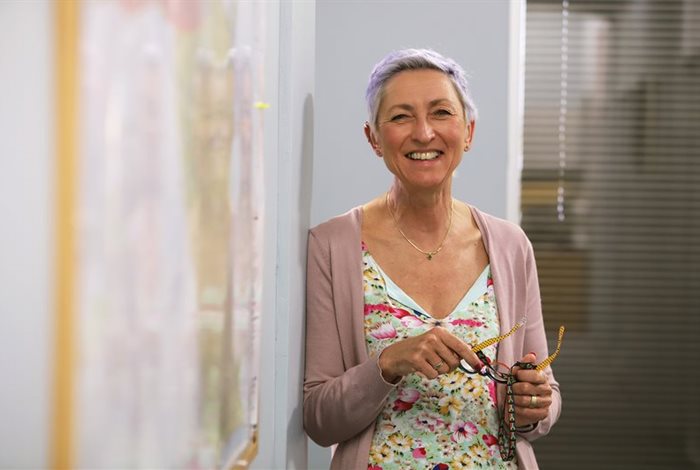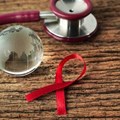Access to vital HIV prevention could lead to lower infection rates in at-risk populations

Source: Supplied. Linda-Gail Bekker, professor of medicine and chief executive officer at the Desmond Tutu Health Foundation.
Decades of diligent research lies behind the new availability of pre-exposure prophylaxis (PrEP) against HIV for communities in Cape Town, says Elsevier, a global information and analytics leader.
In a new series of articles showcasing how credible research changes lives, Elsevier highlights the Desmond Tutu Health Foundation (DTHF), which is making HIV prophylaxis easily accessible to at-risk communities in the Klipfontein-Mitchells Plain, large health district in the metro of Cape Town.
The DTHF, along with its affiliated Desmond Tutu HIV Centre, is an accredited research organisation within the Faculty of Health Sciences, University of Cape Town, and has been working with communities to lessen the impact of HIV since the 1990s.
Where antiretrovirals (ARVs) dramatically improved patient outcomes and life expectancy in the early 2000s, pre-exposure prophylaxis (PrEP) in the form of pills, long-acting injectables or implants now promise to help prevent people from ever contracting HIV.
PrEP has been found to be highly effective in preventing HIV from sexual exposure and needle contamination in intravenous drug use when taken as prescribed. First introduced to South Africa in 2016, PrEP is now available at a growing number of clinics and healthcare services.
Linda-Gail Bekker, professor of medicine and chief executive officer at the Desmond Tutu Health Foundation, says PrEP is relatively new to the community, so the foundation is now researching how to scale up accessibility and uptake through a new PrEP project - dubbed Fast PrEP - inspired by fast food.
“Fast food is appealing to people - particularly young people - because it’s quick, accessible, fun and social. We’re imitating that approach by taking brightly coloured mobile clinics to communities to offer PrEP and other sexual and reproductive health services,” said Bekker. Fast PrEP, funded by the Bill and Melinda Gates Foundation, aims to reach at least 25,000 people.
The project is being implemented using a ‘hub and spokes’ framework, where the mobile clinics serve as the hub and a combination of local government clinics, Kwik depots, youth clubs, courier delivery services, and private independent pharmacies serve as the spokes.
How research is combating HIV
Bekker points out that PrEP is the latest HIV prevention innovation changing the lives of millions of people, and it is all built on years of research.
“If you dial back to the year 2000, we were burying many South Africans due to HIV/Aids. It was a deplorable time when life expectancy dropped to under 50.
Solid research helped shape policy, and we saw the ‘Lazarus effect’ when ARVs practically lifted people out of the grave.
Today, life expectancy has been restored and individuals can expect to live normal healthy lives as long as they adhere to their antiviral therapy.
This shows the extraordinary impacts of research, supported by clinical R&D and health-services research. As we saw the expansion of ARV access, we could chart the increase of life expectancy in Africa and see measurable impacts on population wellbeing.”
“In recent years we realised you can’t simply treat your way out of an epidemic. So, in the past 10 years, the notion of prophylaxis emerged – taking an agent prior to exposure as you do with contraception or anti-malarial medication.
"PrEP might be described as a ‘chemical condom’, which is taken daily in oral form, and we are now also getting injectable and implantable PrEP to reduce the 1.7 million infections still occurring globally each year.
"South Africa is now rolling PrEP out, and now we need to scale up and grow demand,” she said.
Bekker explains that the success of HIV prevention and treatment programmes such as these include work to understand how to integrate HIV and Tuberculosis treatment, and how to better deliver treatment in communities.
This, she says, depends on thorough research. “The research I do includes clinical trial research: finding and testing the innovation; investigator-driven research: taking the R&D and tweaking it to see what improves adherence and acceptability; as well as health-service research: looking at how best to bring this treatment into the health services, in order to make it accessible and to scale it.
"Research is needed every step of the way. Randomised controlled trials are the gold standard; while implementation science can be messy and impacted by real life factors like loadshedding or floods.
"But I believe it’s very important to write up all the lessons learned. I have a responsibility to our beneficiaries, communities and sponsors to do this so we can build on our lessons.”
Bekker notes that all the foundation’s research is done in partnership with the community in line with good participatory practice. “Communities play a critical role in our research – we can’t do this without the full commitment and collaboration of people in communities.”
Anne Kitson, the managing director of leading Elsevier journals, the Lancet and Cell Press says “the Desmond Tutu Health Foundation’s work, and that of others working in the HIV field, clearly illustrates how science improves lives. Credible research, with rigorous controls and standards in place, is the foundation for the innovative thinking and the progress made in combating HIV.
John Sterley, account manager at Elsevier in South Africa says, “At Elsevier, we help researchers to make new discoveries and collaborate with their colleagues and give them the knowledge they need to help find funding.
"We also help governments and universities to evaluate and improve their research strategies. Our goal is to expand the boundaries of knowledge for the benefit of humanity.”
In a new series of thought-leadership content to be released this year, Elsevier has engaged some of South Africa’s most noteworthy scientists and academics to explore their latest work to help address the biggest challenges that South Africa faces.











































